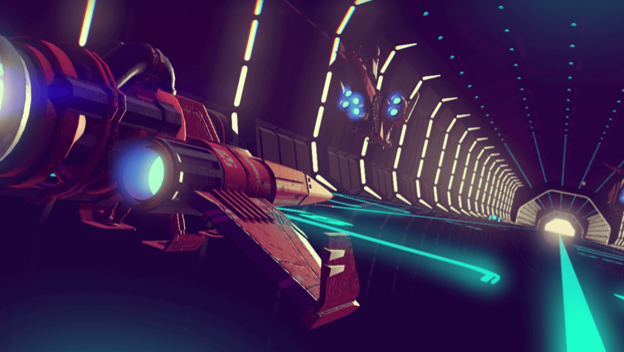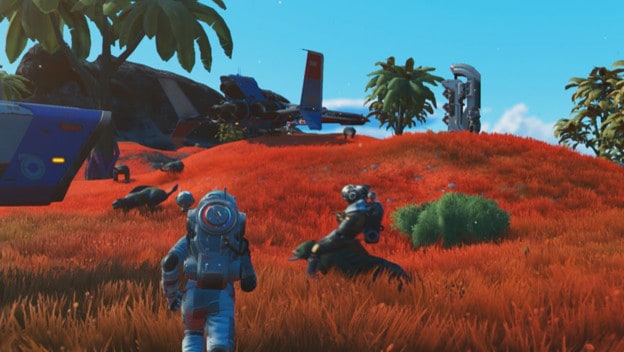Big, hyped games that crash and burn at launch are common. We’ve seen it this year with Anthem ’s disastrous debut and Crackdown 3 ’s sub-par showing, as games that relied on support of a community suffer horribly after not earning one. They’ve been around for much longer, and we often remember the names of the biggest ones as much as we remember the games that were truly great.
Much less common? Getting the development time and effort and passion to build a truly impressive game on a shaky foundation. And No Man’s Sky is that rare example of why that can be so special.
Big companies usually cut and run. It makes sense! If something costs you a lot of money and it didn’t pan out, it’s widely accepted that you don’t throw good money into a project that’s already doomed. Occasionally you’ll see some effort here and there, like with Bethesda’s Fallout 76 , but even then, it’s been more about making it a better version of the game it is than truly achieving its original, lofty ambitions.
Hello Games’ ambitions, at least through an external lens, were sky-high. And the backlash when the game wasn’t what people expected was the sort of thing that leaves a mark on the history of the industry. But here’s the thing: Hello Games isn’t big. It’s actually irrationally small! And the initial launch brought in enough revenue to let the team choose to keep working on the game. And years later, that game has… well, have you checked in on it? It’s difficult to not be impressed.
The newest release, Beyond , is the latest of many big, free updates the game’s seen since launch. Pathfinder , Foundation and Atlas Rises added much-requested basic features, like a more involved story and tons of missions and more substantial tasks to complete. Next added a multiplayer experience a lot of people initially wanted, with cooperative play and base building to let you make the world feel a lot more lived-in. Abyss and Visions worked to make the world even more varied and full of life, with new environments and new ways to interact with them. And Beyond adds, among other things, a well-received full VR experience and a wider online multiplayer experience that feels more like an MMO than the instanced sessions of Next .

It’s a strange situation, then, that the game we have now — arguably one that lives up to what players always wanted — would have never been possible without that false hope. If players knew exactly what that launch game would include, a lot fewer would have paid attention at all, much less bought it. And it’d be over. Instead, we get the game we want only because we didn’t get the game we wanted. It’s a risky gambit, but if you stake your careers (and, likely, your physical and mental health) on it, you can make the game that exceeds your current capabilities.
It’s a shame that we don’t see this more with the big companies that can afford the risk, but it’s the sort of thing that results in a better game than it does a business strategy. For now, let’s be grateful for the success story we have.
